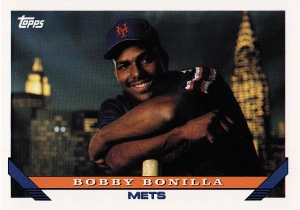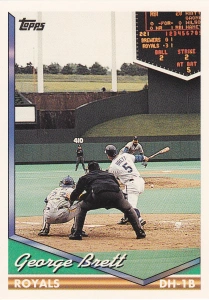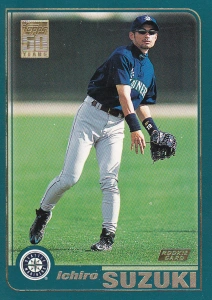This one hit home. As a big Reds fan, how could it not. I’ve got a couple things autographed by the whole Big Red Machine, and having those makes me acutely aware Joe Morgan was unfortunately the first player from the Big 8 to pass away.
Though some didn’t like him as a broadcaster, his impact and influence on the game of baseball was undeniable. He was active as a member of the Hall of Fame’s board.
Morgan was born in Texas but moved to Oakland with his family at the age of 5. After being a standout athlete in multiple sports, he went to Oakland Community College and did well enough to get signed by the Houston Colt 45’s. He was a standout in A-ball in 1963 and in AA-ball in 1964, and got cups of coffee with the Colts both years.
I always enjoyed that his dual player rookie card with Sonny Jackson has the Colt 45’s logo – they switched to the Astros by the time he got his first solo card in 1966.
That 1964 season was the last time he’d play in the minors – in 1965 he was Houston’s starting 2nd baseman and was runner up for the Rookie of the Year award. By just about every metric but RBI he was more deserving than Jim Lefebvre of the Dodgers that year.
Morgan was a very good player for 7 seasons in Houston. He made 2 All-Star teams and probably deserved to make 2 or 3 more. He was traded to the Reds – along with fellow BRM’er Cesar Geronimo – in a blockbuster for Lee May and Tommy Helms. The rest, as they say was history. Morgan’s next 6 years was the best stretch of baseball by a second baseman in the history of the game. The Big Red Machine was ripe with incredible players. As was Morgan – Bench, Rose and Foster were all MVP winners during their career. And Tony Perez was a fellow Hall of Famer, while Davey Concepcion was a borderline HOF-er and Cesar Geronimo and Ken Griffey Sr were perennial all-stars.
But there’s something to be said for being the best player on the best team. And while the Big Red Machine was a thing from roughly 1970 through 1977 – they are one of two teams in the argument for the best of all time because of the 1975 and 1976 seasons. And those were the two years that Morgan – despite being a sabermetric darling when sabermetrics didn’t exist – won his two MVPs. Reciting his statistics probably doesn’t do him justice, but I’ll say a few things:
- his OBP was .456 over those 2 championship seasons in 1975 and 1976
- his baseball-reference WAR from 1972 to 1976 averaged 9.5, which for reference is a little better than Mike Trout’s best 5 year stretch.
- in 1972 (Bench) and 1973 (Rose) when his teammates won the award, every site I can find considers Morgan the better player on that team. In 1974 Mike Schmidt should have been the MVP, and Morgan should have been second – but most metrics have Morgan as the best position player in baseball for 4 out of 5 years and the second best the other season. The only players I can think of who can claim that kind of a peak are Ruth, Bonds and maybe Wagner, Cobb or Trout. Three of those guys were way before MLB expansion and integration. And only Wagner played the infield.
- His batting stance and the dipping right elbow was cool AF
Morgan was greatly appreciated during his career, but hindsight shows us he was actually underappreciated because the world didn’t understand the value of getting on base. And he had a .392 career OBP despite playing a large part of his career in eras that were very defense-leaning.
His broadcasting on Sunday Night Baseball and other avenues has been a big factor in how people viewed him in the latter part of his career. He was something of punching bag in a prominent passage of the book Moneyball, which is funny because the book at the same time points out he was underrated as a player. He probably had a little bit of a “get off my lawn” leaning as a broadcaster, but I always enjoyed him. Maybe because I knew he was on my team. Those fire Joe Morgan websites were always a bit much (actually a lot much) to me.I mention above that I have a couple autographed Big Red Machine items. I got those autographs when I was quite a bit younger and he was always friendly in the setting. I believe he cared about fans of baseball, and I don’t think the narrative that arose that he knew more than everyone else was fair.
Regardless of all that, I think he got his due after the fact, deservedly so. He was well-respected in the game and had a big influence on the Hall of Fame in his later years. His health had been deteriorating in the past decade or so, but I was so sad to hear he passed away. Pete Rose and Johnny Bench are probably the 2 greatest Reds just because of the pure number of seasons they spent with the team, but Joe Morgan had the best stretch of any Reds player. I always viewed the best teams in history this way. Only two teams had multiple guys who could claim legit argument as the best player at their position. The 1927 Yankees had Babe Ruth and Lou Gehrig, but the Big Red Machine had Bench and Morgan at their peak – but then Rose, Perez, Foster and 3 other All-Stars as well. I’d go with the guys in Riverfront.
Rest in Peace, Joe!
















